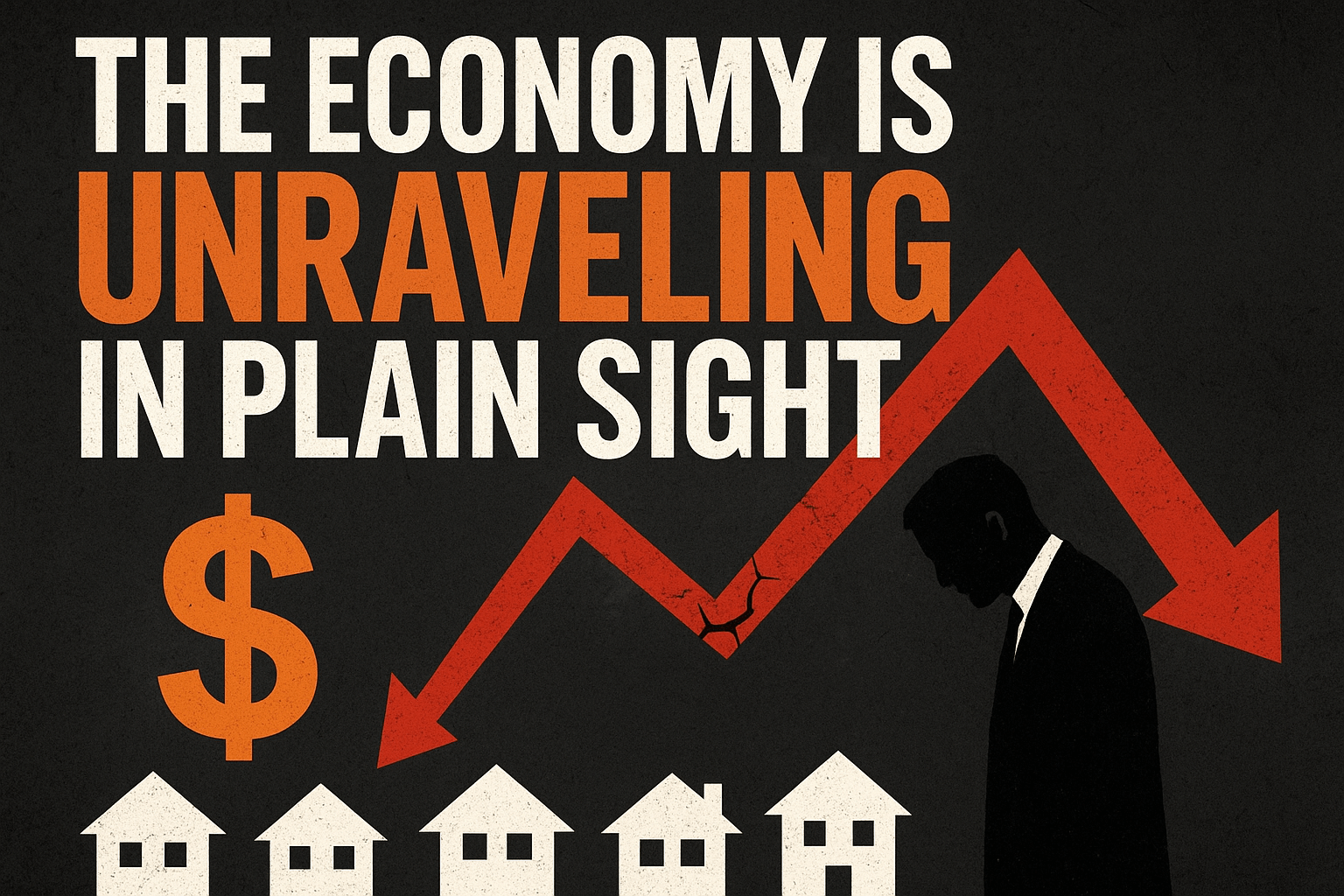You think you can’t find a job and that it’s your fault? Think again. It’s not so simple. There’s a much bigger puzzle at play here, and most people choose to ignore it out of fear—because the truth might be terrifying. What if the strings holding up this economy are already fraying, and we’re all standing on the edge, pretending everything is fine?”
Talk to anyone right now and you’ll hear the same story: “I can’t find a job.” These aren’t lazy people. “These are hard working folks just trying to do the right thing—pay their bills, feed their families, and keep their heads above water.” But reality is far more stark. “This is just one symptom of a much larger collapse taking shape around us.”
Inflation Eating Paychecks Alive
“I usually spend around $200. Back then, that $200 gave me a full cart and some money left over. Now? That same $200 barely fills half a cart.” The author explains, “I didn’t change what I buy. I didn’t splurge. I bought the exact same basics I’ve always bought. And I believe I’m not the only one noticing this—it’s happening everywhere.”
But groceries aren’t the broader problem. “They’re just the daily reminder.” The deeper issue is the rising costs everywhere—electric bills, gas, and even the “cheap stuff at the grocery store.” The disconnect is clear: “Politicians keep saying things are getting better, but they’re not shopping where I shop or paying the bills I’m paying.”
Homes Nobody Can Afford
“Record inventory of newly built homes piling up unsold.” The construction boom isn’t a sign of health—it’s “just another bubble waiting to burst.” With mortgage rates sky high and stagnant wages, buyers are nowhere to be found.
The author describes driving through a subdivision: “Rows of houses with ‘For Sale’ signs collecting dust. The grass is cut, the sidewalks are pristine, but nobody’s home. It’s weird as hell—like a movie set nobody bothered to populate.”
Meanwhile, even full-time workers are priced out. “I have a friend who works a full time job, and he is still living in his parents’ basement because he can’t scrape together a down payment.”

The Rich Already Moving Their Money
“While working families suffer, the ultra rich are diversifying like their lives depend on it.” Large institutions are “quietly buying up gold, commodities, and hard assets. This isn’t paranoia; it’s preparation.”
“They’re not just protecting their wealth—they’re positioning to profit from everyone else’s misery. While ordinary people lose their homes, billionaires are buying up real estate. While families struggle with grocery bills, hedge funds are investing in farmland and food production.”
The warning is clear: “This isn’t a recession. This is a fundamental reshaping of the economy, and they’re making sure they come out on top.”
Washington’s Disconnect
“You know what’s really messed up? Congress spent weeks arguing about trade deals with China while my neighbor lost his house.” The focus on global competition comes while “people here can’t afford rent.”
“It’s like watching someone rearrange deck chairs on the Titanic.” The author points out that “every time there’s talk about helping regular people, suddenly there’s no money in the budget. But somehow there’s always money for defense contractors and bank bailouts.”
“They’ll bail out banks but let your neighbor lose their home. It’s not incompetence—it’s priorities. And working people aren’t on the list.”
The Broader Collapse
“Rising corporate bankruptcies tell the story of an economy eating itself alive.” Long-time employees are cut loose in weeks, while “young people with college degrees work retail jobs that don’t even require a high school diploma.”
“This isn’t some natural economic cycle. Something fundamental has shifted, and most people haven’t figured it out yet.” Small businesses are barely surviving. “Main Street is dying while Wall Street celebrates record profits.”
A Slow-Motion Disaster
“The signs are everywhere: collapsing jobs, unsold homes, crushing inflation, and ultra rich diversifying while ordinary people drown.”
“This isn’t a cycle that will turn around in a year or two. This is structural collapse disguised as normal economic fluctuation.”
The human toll is undeniable: “Families are being torn apart by financial stress. Dreams are being deferred indefinitely. Young people are living with their parents not by choice but by necessity.”
The final warning: “We’re living through a economic collapse in slow motion, and most people are too busy trying to survive it to recognize it for what it is




